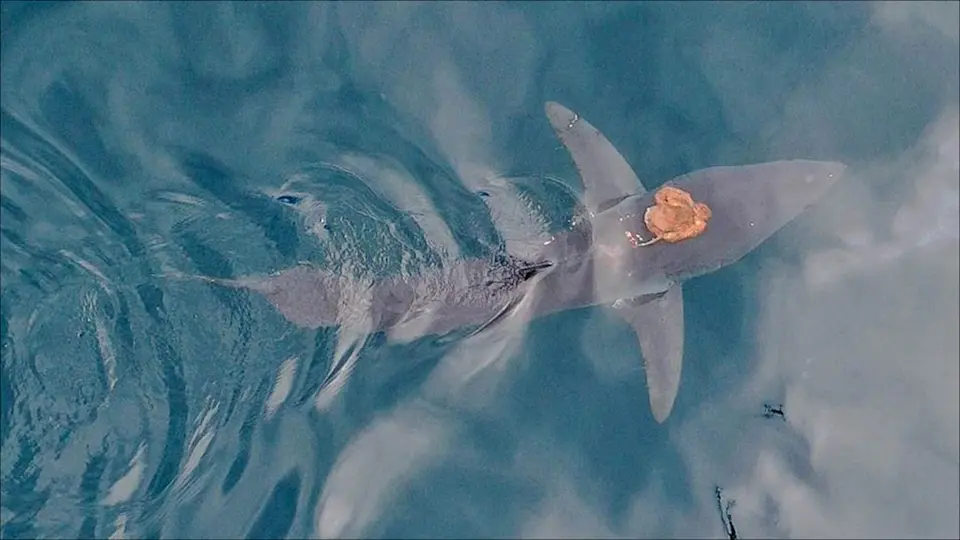Marine researchers in New Zealand recently captured a bizarre and rare sight—an octopus clinging to the head of a shortfin mako shark, the fastest shark in the ocean.
An Unlikely Duo in the Deep
During a research trip in December 2023, scientists in the Hauraki Gulf spotted something unusual: a bright orange patch on the head of a 10-foot (3 m) mako shark. A drone and underwater camera revealed the shocking truth—an octopus had latched onto the shark’s head, holding on with its tentacles.
“We really don’t know how this octopus, that lives on the seabed, came across this mako shark, which lives in open ocean waters,” said marine biologist Rochelle Constantine. “It really is a mystery—but the ocean is filled with unexpected things.”
Why Was the Octopus There?
Scientists are unsure why the octopus hitched this ride. Was it escaping a predator? Hunting for food? Or simply caught off guard? The octopus kept its tentacles tightly wrapped around the shark, possibly to avoid detection.
Interestingly, the shark didn’t seem to mind. It swam slowly, allowing the octopus to stay attached. However, experts believe that if the mako had picked up speed, the octopus would have been forced to let go.
Meet the Shortfin Mako: The Ocean’s Speed Demon
Shortfin mako sharks (Isurus oxyrinchus) are known for their incredible speed, reaching up to 46 mph (74 km/h). They are also powerful jumpers, able to leap 20 feet (6 m) out of the water.
These apex predators typically hunt fast-moving prey like swordfish, tuna, and squid, but this unusual encounter suggests they sometimes cross paths with unexpected ocean creatures.
Conservation Concerns
Shortfin mako sharks are endangered, largely due to overfishing and the shark fin trade. Their slow reproduction rate makes it difficult for populations to recover.
“By supporting conservation initiatives, we can help to ensure that such extraordinary moments keep happening,” Constantine emphasized.
This “sharktopus” moment is a reminder of how much we still have to learn about the ocean—and why preserving marine life is so important.
